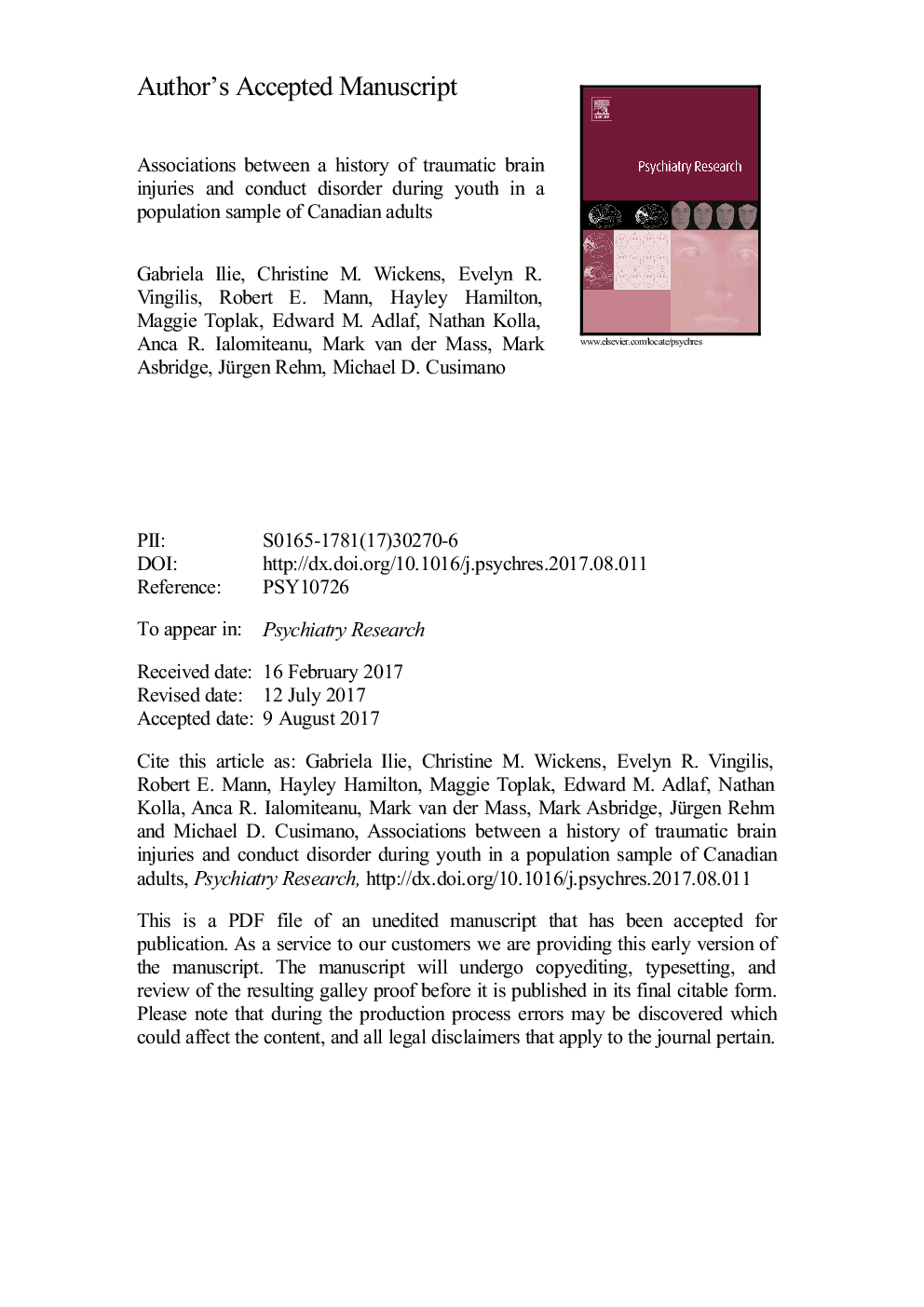ترجمه فارسی عنوان مقاله
انجمن بین سابقه ضایعات مغزی آسیب دیده و اختلال عملکرد در طول جوانان در یک نمونه جمعیت از بزرگسالان کانادایی
عنوان انگلیسی
Associations between a history of traumatic brain injuries and conduct disorder during youth in a population sample of Canadian adults
| کد مقاله | سال انتشار | تعداد صفحات مقاله انگلیسی |
|---|---|---|
| 132913 | 2017 | 22 صفحه PDF |
منبع

Publisher : Elsevier - Science Direct (الزویر - ساینس دایرکت)
Journal : Psychiatry Research, Volume 258, December 2017, Pages 184-188
ترجمه کلمات کلیدی
آسیب تروماتیک مغز، بزرگسالان اختلال در طول عمر جوانان، تاریخ عمر آسیب مغزی آسیب دیده،
کلمات کلیدی انگلیسی
Traumatic brain injury; Adults; Conduct disorder during youth; Lifetime history of traumatic brain injury;

